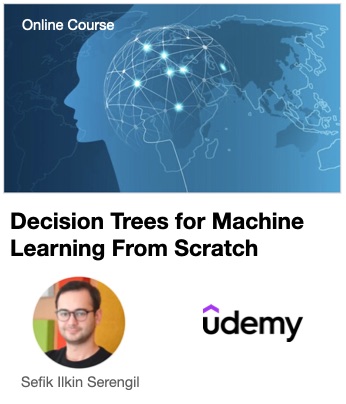I recently became a data science chapter lead in my organization. It sounds a cool title, right? Firstly, this is not a regular managerial role such as team leader. It comes from an agile career path and it plans to improve craftsmanship skills of your colleagues. As you might guess, I do my job as my hobby. This blog reflects that feeling. So, becoming a chapter lead satisfies me a lot. Because, following the state-of-the-art studies becomes a part of my daily job. In this post, I’ll share some impressions about this role.

Vlog
You can either read this tutorial or watch the following video. They both cover a day in the life of chapter lead of data scientists in an AI tribe.
🙋♂️ You may consider to enroll my top-rated machine learning course on Udemy

The Spotify Model
A tribe consists of many squads. A squad is a primary dimension focusing on product delivery while the chapter is a competency area. An engineer is a member of both squad and chapter as well. Herein, being a chapter lead will make you responsible for coordination of technical development of chapter member in addition to product delivery. In other words, you are expected to coach and mentor ones in your chapter.

Being a chapter lead does not make you a regular manager. In the squad perspective, a product owner is responsible for managing product backlog. It is not a managerial role. Similarly, a scrum master is responsible for checking that scrum is working. It is not a managerial role, too. There is just one managerial role in a tribe. It is the tribe leader!
Chapters are pivotal foundations in a tribe. They are not ordinary units. It is important to create working and active mechanisms. That’s why, chapter lead should be the one that chapter members respect. This is not a must but chapter leads are not assigned by a tribe leader in my organization, they are elected by members of the chapter in a two phased election. This would help the chapter foundation works.
BTW, I strongly recommend you to watch the video of Spotify Engineering Culture.
Chapters
In an AI tribe, there are mainly data science, data engineering and scrum master chapters. It is important to collaborate with other chapters and its chapter leads. Because in an agile team, your role specifies the strongest skill of yourself. How an attack player should become a back line player if the team plays defensively, data scientists could handle some data engineering tasks or vice versa.
Besides, POCLAC is the acronym of the product owner, chapter lead and agile coach. Those people are expected to meet weekly. In those meetings, current delivering skills of squads are questioned. Which skills should be added and planned to squad members?
The Ratio Club
In my opinion, the chapter concept heavily reflects the spirit and vision of the Ratio Club. The motto of the club is to talk until reaching some understanding. The aim of the chapter foundation is information transfer between members. We follow new trends and developments and try to find solutions for existing problems here.
Meetings of the community were hold in the basement of a hospital. This is very similar to the foundation of Google in a garage.
Hierarchy
Professors were not allowed to attend club meetings. In this way, they encourage young minds to discuss and debate. Besides, a member will not be a member of the community anymore if he promoted to professorship. This is very similar to the horizontal hierarchy in the scrum teams. Even though chapter lead role exists, it’s not a hierarchical role. It concentrates to coordinate technical development of the members.
Turing’s way
Meetings were scheduled monthly. Alan Turing was a member of the community. He appears in the far left in the bottom row in the team photo. He gave a speech in the Dec 1950 and its topic was educating a digital computer. We shortly call this machine learning nowadays. Arranging regular meetings are expected in a chapter and we mostly talk about machine learning subjects here.
Special thanks to Ali Yalcin to inform me about the Ratio Club.
Like this blog? Support me on Patreon


